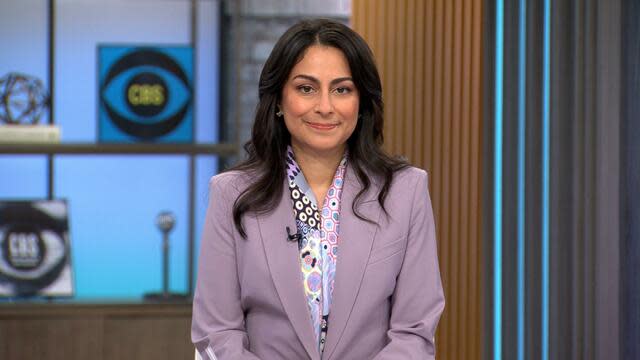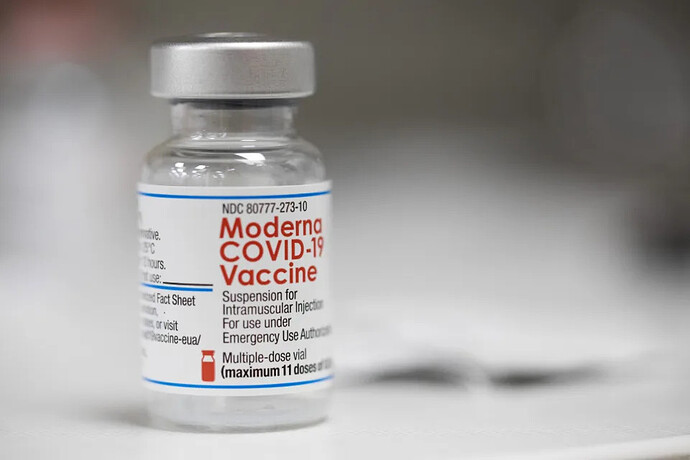What to know about the new COVID shots this fall

Scroll back up to restore default view.
Alexander Tin
Updated Wed, August 9, 2023 at 4:13 PM CDT
The first new COVID-19 vaccines updated for this fall season are now expected to be available by the end of September, once both the Food and Drug Administration and the Centers for Disease Control and Prevention sign off on the new shots. The new shots are designed to target the XBB variants — strains of the virus descended from the original Omicron variant — which are now the most common form in circulation.
Three vaccine manufacturers, Moderna, Pfizer and Novavax, are expected to offer the revised shots for this fall, which virtually all children and adults will be eligible for.
The rollout of the shots will also mark three major shifts in the U.S. response to the virus: the end of government-bought vaccine supplies, a simplification of who is eligible to get shots and a significant change to the recipe used in the vaccines.
What’s different about the new COVID-19 vaccines?
After a meeting of its outside vaccine advisers in June, the FDA said it would ask vaccine makers to switch to using only a single component in their recipes targeted at the XBB.1.5 variant, in hopes of broadening immunity.
This is a change from the “bivalent” composition used in the last round of boosters, which blended two components: one aimed at boosting immunity against the original strain of the virus and another aimed at the Omicron BA.4/5 strain.
While newer XBB descendants have since emerged — including EG.5, a strain that’s rapidly gaining ground — experts say these variants so far remain closely related, and the updated vaccine formula should offer protection…
CDC says COVID variant EG.5 is now dominant, including strain some call "Eris"Loss of smell or taste was once a telltale sign of COVID. Not anymore.
“There doesn’t seem to be any particular advantage to a bivalent vaccine. XBB is the lineage right now, and there is good cross-protection, no matter what antigen is chosen, according to the data that we’ve been shown,” Dr. Eric Rubin, one of the FDA’s vaccine advisers, said at the June meeting.
When will new COVID-19 vaccines be available?
While the new vaccines are expected to be ready by late September, it could be October before they’re widely available for everyone who wants them.
Two steps will still be needed before the new vaccines can make their debut in the U.S. commercial market: a green light from the FDA and new recommendations from the CDC.
The FDA is expected to grant approval or emergency authorization to all three new COVID-19 vaccines over the next two months. Pfizer and Moderna could be first to get the FDA’s licensure, after finishing their submissions to the agency back in June.
“What we expect is that we will have approval by the end of August. And we are ready with products already now,” Pfizer’s CEO Albert Bourla told investors on August 1.
Novavax has yet to complete its submission for a new emergency use authorization for its updated vaccine, but plans to do so within the coming weeks.
“That’s going to be concluded this month, with expectation for us to be delivering product by the end of September,” Novavax’s President of Research and Development Filip Dubovsky told investors on August 8.
The FDA is not expected to call another meeting of its Vaccines and Related Biological Products Advisory Committee before signing off on the new shots. However, the CDC does still plan to convene its Advisory Committee on Immunization Practices before issuing updated recommendations for the three new shots.
“After their authorization or approval, ACIP will meet to make a recommendation outlining use of these updated vaccines this fall,” CDC spokesperson Kathleen Conley told CBS News in a statement.
This is needed to ensure liability protections for vaccinators as well as to guarantee insurance coverage and access to the new shots.
That timeline could add up to new COVID-19 vaccines not being widely available until October, along the lines of what CDC Director Dr. Mandy Cohen recently told NPR. October would be later than previously forecasted by the FDA’s top vaccines official Dr. Peter Marks, who had predicted the shots could be available in September.
“While we cannot comment directly on timing, the FDA anticipates taking timely action to authorize or approve updated COVID-19 vaccines in order to make vaccines available this fall that meet our expectations for safety, effectiveness and quality,” an FDA spokesperson said in a statement.
Who will be eligible to get the new COVID-19 vaccines?
Unlike vaccinations earlier in the pandemic, federal officials say they have been working in recent months to simplify eligibility for future rounds of shots, akin to the annual seasonal influenza shot.
For teens and adults, Americans would have their pick of any of the three updated vaccines.
For children as young as 2 years old, draft CDC vaccine recommendations presented in June would allow for a single new shot from either Pfizer or Moderna in order to be up to date. Children down to 6 months still might be recommended to get two or three doses.
“The intent is to harmonize for all doses, all ages, same composition. So in the fall, that would be the 2023-2024 formula, would be an XBB.1.5,” the FDA’s Dr. David Kaslow said in June at the CDC meeting.


